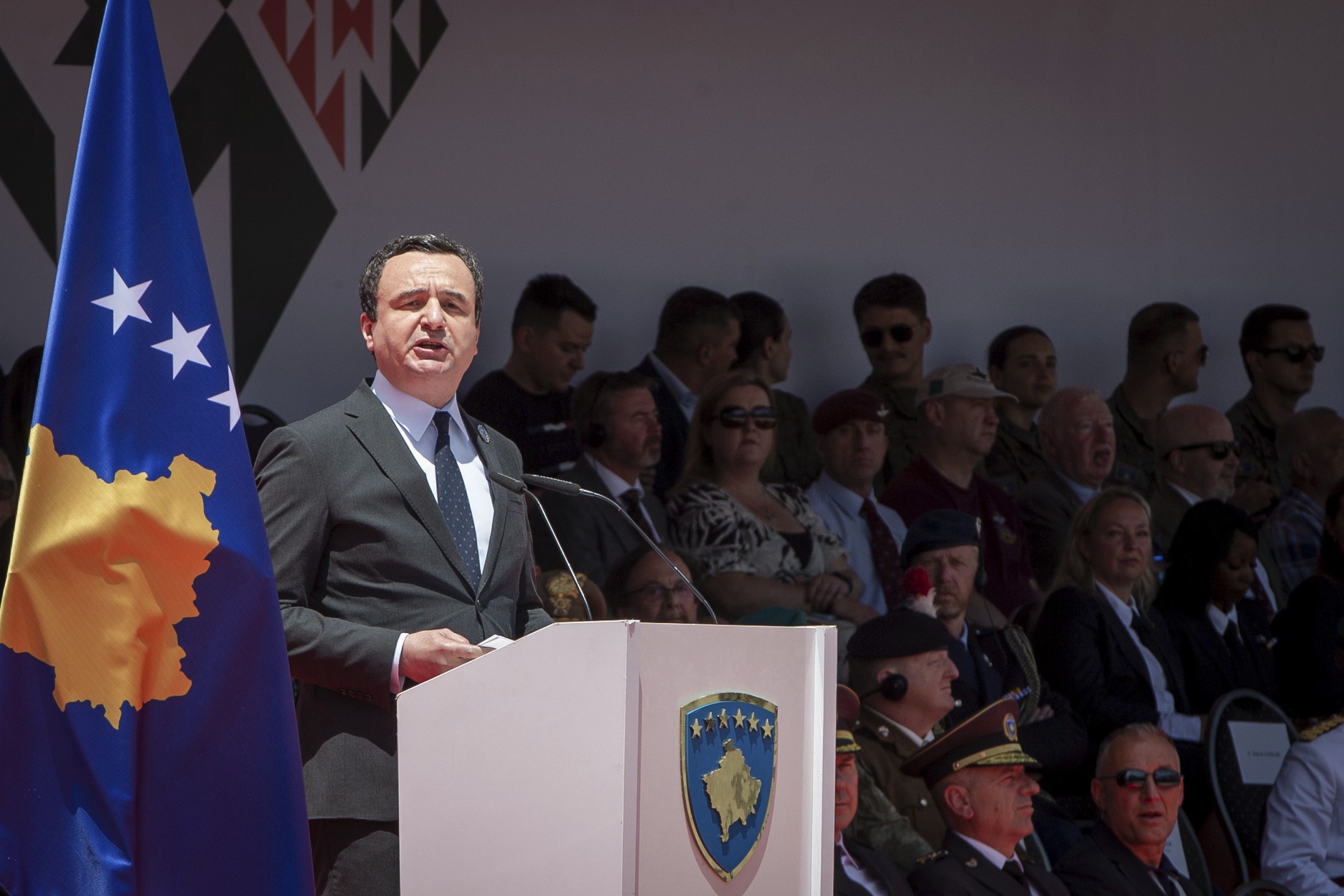The significance of Sunday’s local elections (October 12) goes far beyond a political competition for the governance of municipalities in Kosovo. Serbia’s interference, more aggressive than in the past due to the failure of its boycott policy (2022) and the decline of its control in the north, have turned these elections into a geopolitical battlefield aligned with the Russian axis. What is disguised as an electoral campaign of the Serbian List is, in fact, a choreography orchestrated in Belgrade to maintain control over the Serb community as a political instrument against the Republic of Kosovo.
The Theatre and the Backstage of Interference
Serbia is not worried about votes, and undermining democracy in Kosovo is not just its ideological agenda. Faced with consecutive losses resulting from the failed boycott strategy in 2022 and the shrinking of Serbian List in 2025, it has designed a new plan to restore influence through Serb-majority municipalities and a renewed destabilization strategy. Given Kosovo’s “strategic depth” due to NATO’s presence and Western allies, Serbia seeks “strategic breadth” through Russia and China. Its support for the Serbian List is not about political preference or electoral competition, but a calculated instrument to reestablish control over the Serb-majority municipalities.
The mobilization of votes in favor of this entity should not merely be seen as a violation of citizens’ democratic will; rather, it is a message of “unity,” meant to portray Belgrade as the center of decision-making. By keeping the Serb community under control, Aleksander Vučić continues to use it as a political instrument for sabotaging Kosovo. In this function, he has engineered deceptive campaigns and continues to deploy sophisticated hybrid tactics involving media, culture, espionage networks, and cyberattacks. Alongside previous overt and covert methods to influence voters, in the October 12 elections campaign Serbia has increasingly used pro-Russian cultural symbols and ‘reflective narratives’ that distort the truth. The concert planned by the Serbian List featuring the pro-Russian singer Breskvica, known for the coded chauvinist song “Eagle’s Nest” (Gnezdo orlovo), confirms not only the role of this political entity as Belgrade’s tool but also its clear pro-Russian alignment.
The banning of this provocation for security reasons was followed by accusations against the police of repression and strong nationalist statements from the Serbian List. Its electoral discourse employed the same chauvinistic framing as Belgrade’s, through mobilizing slogans such as “A vote for the Serbian List is a vote for the liberation of Mitrovica” and “victimhood” narratives against the return of Albanians to their properties presented as efforts of “Albanization of Serb municipalities.”
Meanwhile, with greater intensity than before, Serbia’s interference in the October 12 elections includes methods such as political pressure (lynching independent candidates as “traitors” and “tools of Pristina”), blackmail (Vučić’s promise to announce 400 new jobs in the health sector), vote-buying (Petković’s pledge of financial aid under the guise of social assistance), and various forms of threats
Truth as Exposure
The use of music, religious liturgies, and international forums to promote “the truth” of a local election campaign, is a political strategy aimed at “internal armament” and “external deception.”
When a singer is promoted by a state-directed media network and a narrative synchronized with Moscow’s agenda, a local election campaign takes on geopolitical dimensions.
The subtext of the Serbian List’s triumphant messages resonates with chauvinistic calls of “when the army returns to Kosovo.” Such a persistent threat to peace in the Balkans is “allowed” to militaristic Serbia, whereas when Kosovo signs defense agreements with Albania and Croatia, or strengthens its own defense capacities, it is portrayed as a “threat” to Serbia.
This ironic scene of Serbian “victimization” repeated itself recently after the arrival of “Skydagger FPV” kamikaze drones for the Kosovo Security Force. Serbian officials accused Turkey of violating UN Resolution 1244, while labeling the acquisition as a direct threat to regional peace and stability.
A state with a genocidal past, which attacked Kosovo (2023), continues to provoke it, and has undergone dangerous militarization in recent years, now “complains” that Kosovo is strengthening its defense capacities.
A typical DARVO (denial, aggression, victimization) strategy aimed at maintaining the ability to destabilize in the current context: the longer it hinders Kosovo’s international consolidation, the more likely it is for political gain.
This is the geopolitical choreography of the October 12 elections, against which truth serves as an effective mechanism of prevention. With vigilance and a high level of institutional preparedness by security bodies to respond to any form that threatens the integrity of the electoral process, and with the documentation and exposure of the conductor in Belgrade by international observers and the media, Serbia would be burned worse than Russia in Moldova, while democratic will would triumph in Kosovo

